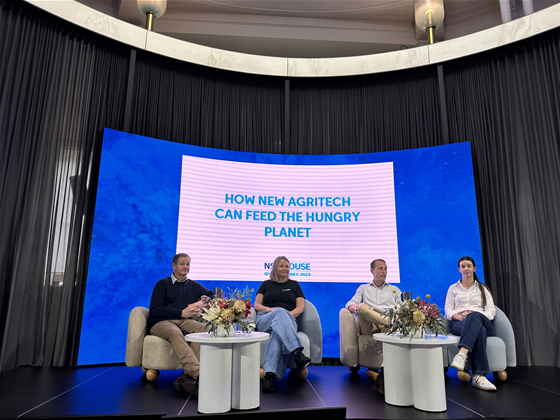Australia has a competitive advantage compared to other countries when it comes to being a leader within the agricultural technology (agtech) industry, according to Kylie Frazer, founder at Flying Fox Ventures.

Frazer spoke at an agtech panel at SXSW Sydney telling audiences she is “super excited” when she thinks about how Australia can take advantage of its role to play within this industry.
“A lot of our investors come from overseas and when you're trying to bring in new venture capital into Australia, the number one question they ask is why Australia?” She explained.
“If you look at other innovation ecosystems around the world, they have built their muscle off the backs of problems they knew deeply.”
Frazer used the example of the Israeli innovation system, where they felt their major problems were defence and water.
“They had to find solutions for those things and they built this innovation muscle around those industries that spread to other areas,” she said.
“In Australia, that is agriculture. We have a nation of farmers and we have huge amounts of arable land, but we also have super tough growing conditions.”
Frazer explained it is quite common in agtech circles for funders to get excited when they hear that an agtech company has run its trial in Australia.
“They know all too frequently if you can get a product to work here in Australia, you can get it to work anywhere because it's bloody hard to get things to work here,” she said.
“That combination of things makes me excited for not just the opportunity to invest in agrifood, but to invest in agrifood opportunities right here.”
Frazer added that as an industry venture capitalists are trying to bring more international investors on the shore as the industry as a whole globalises.
“One of the beautiful things about investing in venture capital is that some of the biggest problems facing the world also represent the biggest financial opportunity,” she said.
“It's hard to think of a better case study for that, a better example than feeding the growing population, particularly under conditions that keep worsening year on year.”
She added, “You can see that technology is not a nice to have, it's a need to have that we're simply not going to be able to feed the planet if we don’t rethink our food system and technology has an integral role to play.”



_(23).jpg&h=140&w=231&c=1&s=0)
_(22).jpg&h=140&w=231&c=1&s=0)





_(26).jpg&w=100&c=1&s=0)
 iTnews Executive Retreat - Security Leaders Edition
iTnews Executive Retreat - Security Leaders Edition












_(1).jpg&h=140&w=231&c=1&s=0)



